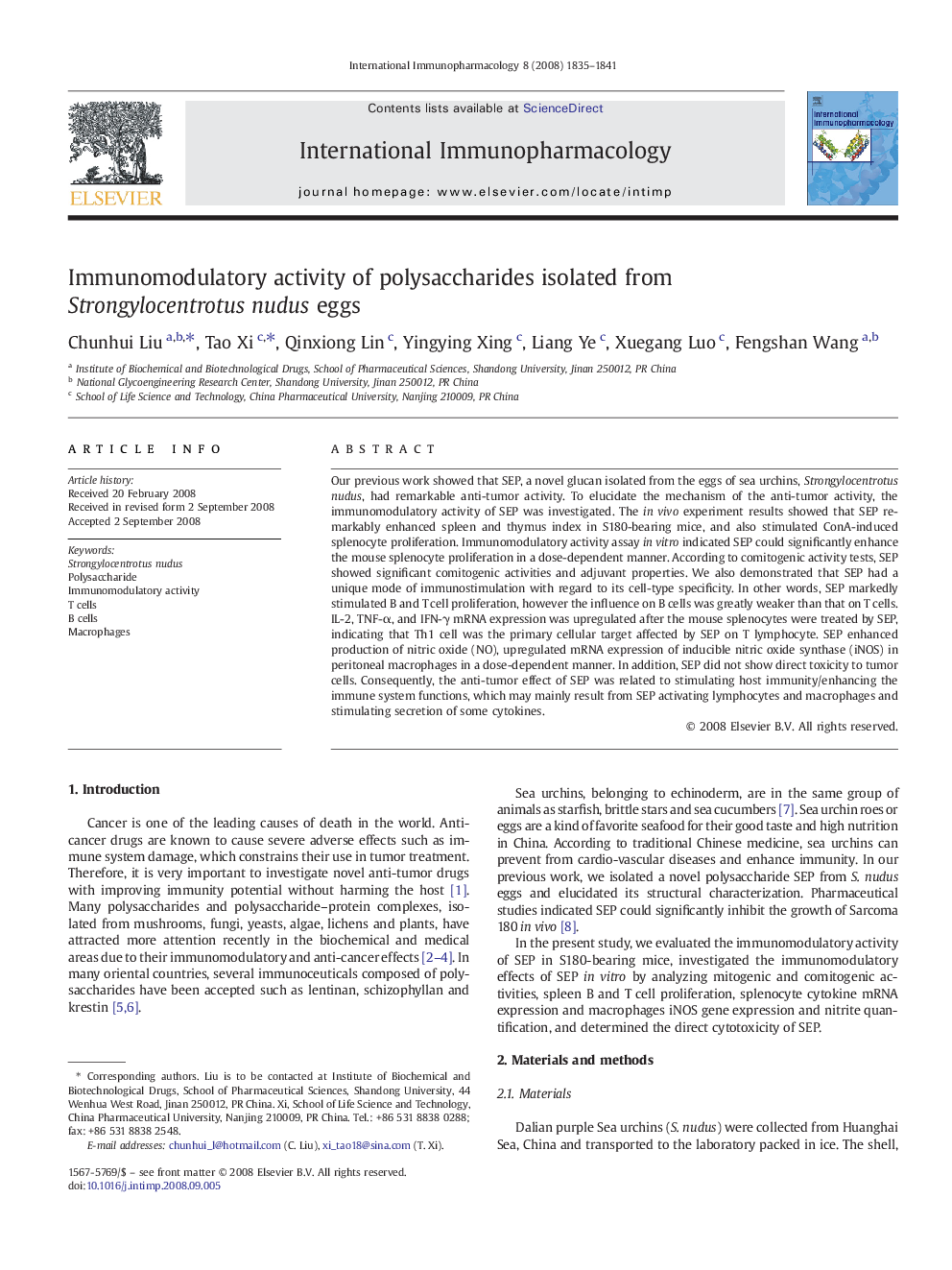| Article ID | Journal | Published Year | Pages | File Type |
|---|---|---|---|---|
| 2541998 | International Immunopharmacology | 2008 | 7 Pages |
Our previous work showed that SEP, a novel glucan isolated from the eggs of sea urchins, Strongylocentrotus nudus, had remarkable anti-tumor activity. To elucidate the mechanism of the anti-tumor activity, the immunomodulatory activity of SEP was investigated. The in vivo experiment results showed that SEP remarkably enhanced spleen and thymus index in S180-bearing mice, and also stimulated ConA-induced splenocyte proliferation. Immunomodulatory activity assay in vitro indicated SEP could significantly enhance the mouse splenocyte proliferation in a dose-dependent manner. According to comitogenic activity tests, SEP showed significant comitogenic activities and adjuvant properties. We also demonstrated that SEP had a unique mode of immunostimulation with regard to its cell-type specificity. In other words, SEP markedly stimulated B and T cell proliferation, however the influence on B cells was greatly weaker than that on T cells. IL-2, TNF-α, and IFN-γ mRNA expression was upregulated after the mouse splenocytes were treated by SEP, indicating that Th1 cell was the primary cellular target affected by SEP on T lymphocyte. SEP enhanced production of nitric oxide (NO), upregulated mRNA expression of inducible nitric oxide synthase (iNOS) in peritoneal macrophages in a dose-dependent manner. In addition, SEP did not show direct toxicity to tumor cells. Consequently, the anti-tumor effect of SEP was related to stimulating host immunity/enhancing the immune system functions, which may mainly result from SEP activating lymphocytes and macrophages and stimulating secretion of some cytokines.
